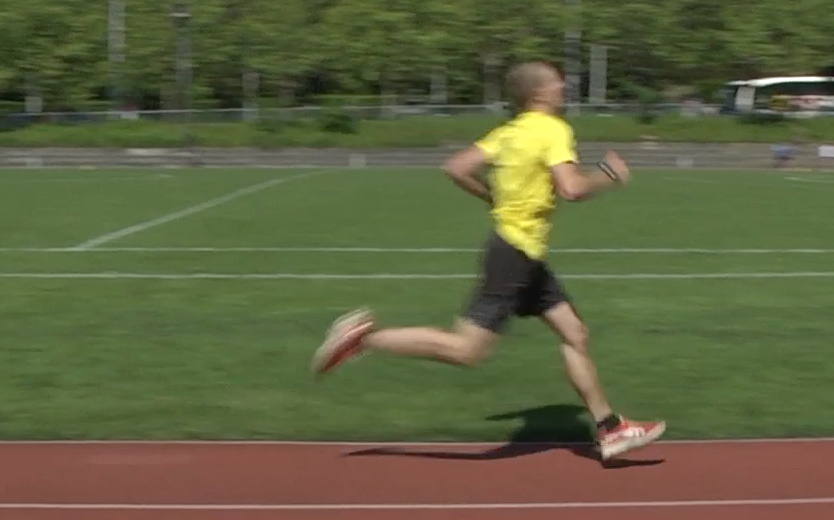Peak Exercise Performance
Peak exercise performance is determined by the optimal interplay between brain, cardio-respiratory and the neuromuscular-systems. Depending on type, duration and intensity of exercise and a person’s fitness level, the degree by which the different systems affect peak performance, varies greatly. On top, the different systems interact, e.g. performance of one system may affect another system. For endurance-type performance, we and others showed, for example, that fatigue of respiratory muscles may negatively affect leg muscle performance, possibly by a mechanism called respiratory muscle metabo reflex.
Thus, to specifically train the respiratory system, our group developed a respiratory muscle endurance training device. This training was shown to improve exercise performance, specifically in those athletes that are prone to fatigue their respiratory muscles. However, todate physiological characteristics that differ between individuals who do or do not develop respiratory muscle fatigue during strenous exercise, are still unkown. Furthermore it is unclear which training regimen may improve which specific type of performance.
Therefore, our groups’ efforts are to search for intra-individual differences that determine the extent to which physical performance is increased by this specific training, and to further refine the training regimen itself to specifically taylor training to an athlete’s need.
In this context, we also explore new physical training regimes that allow a greater metabolic challenge than those known so far to explore whether this additional load may also translate into further improvements of performance.
